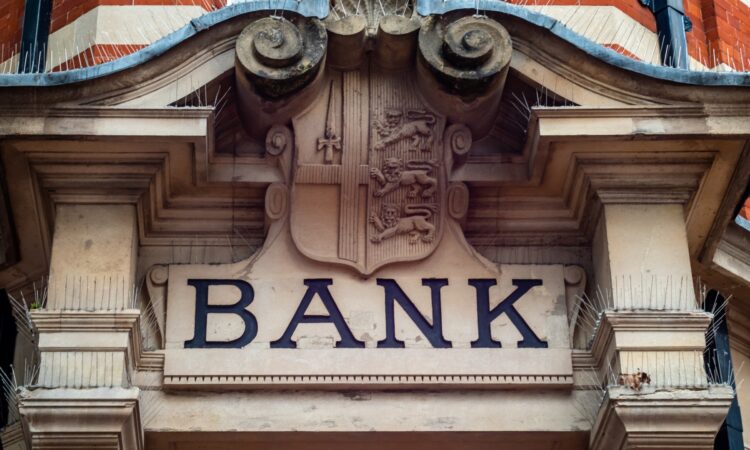
A HIGH street bank is making a major change to its overdrafts, impacting millions of customers.
Lloyds Banking Group, which runs Lloyds Bank, Halifax and the Bank of Scotland, is shaking up the way it charges for arranged overdrafts.
An overdraft lets you spend money or withdraw cash if your balance drops below £0 but you can be charged interest on anything you spend over this limit.
Lloyds’ current interest charge is usually 39.9% although some customers pay less – those with a Club Lloyds account pay 27.5%.
But under the new system, some customers will be charged 49.9% interest on the amount borrowed – a 10 percentage point hike – from August.
It means Lloyds Banking Group will be charging the highest rate of interest on overdrafts of all the major high street banks.
Not all customers will see their interest rates hiked. Some will stay on the same rate and others will see theirs drop to either 19.9% or 29.9%.
Meanwhile, the 27.5% rate on Club Lloyds, an account which comes with a £3 a month fee, will be ditched completely.
Andrew Hagger, personal finance expert from MoneyComms, said a 49.9% interest charge was more often associated with sub prime credit card lenders and for people with poor credit records.
It is understood Lloyds customers won’t see fees changed on unarranged overdrafts, which aren’t prearranged with your bank.
Dipping into an unarranged overdraft can be particularly bad for your credit rating as it shows to lenders you struggle to maintain your finances.
A number of current accounts are impacted by the recent change announced by Lloyds.
This is the full list:
Bank of Scotland:
- Platinum Account
- Silver Account
- Classic Account
Lloyds:
- Classic Account
- Club Lloyds Account
- Silver Account
- Club Lloyds Silver Account
- Club Lloyds Platinum Account
Halifax:
- Ultimate Reward Current Account
- Reward Current Account
- Current Account
Llloyds, which has 27milion UK customers, said the rate individual customers will be charged will depend on information from credit reference agencies and the way they use their accounts.
Any customers who are set to see their fees hiked will be given 60 days’ notice before they are introduced.
Anyone whose interest rate is falling will be given seven days’ notice.
Any hikes will be capped at 7.4 percentage points above a customer’s current rate.
A Lloyds Banking Group spokesperson said: “We are writing to our customers to let them know we’re introducing new interest rate tiers on our overdrafts.
“The changes mean many will continue to pay the same or less than they do today, while some may see an increase.”
It comes after millions of credit card customers were urged to check their accounts with lenders hiking interest charges.
An investigation by The Sun last month found some providers have raised the interest charged on their cards by 11% in the last 10 years.
Lenders have been hiking rates on mortgages and credit cards in recent months following Bank of England base rate hikes.
The base rate currently stands at 5.25%.
What you can do if you are a Lloyds customer
If you are a Lloyds Banking Group customer and worried about the potential impact of your overdraft fees rising, you’ve got options.
The first and most obvious way to avoid the hikes is by opting out of having an overdraft option at all.
Not only will you be hit with the added fees by opting for an overdraft, they can be hard to get out of.
Another option is to switch current accounts to a bank or building society offering a lower interest charge on the overdraft.
Not only that, but a number of banks will pay you free cash to switch to one of their current accounts.
You just have to make the switch using the Current Account Switch Service (CASS).
Andrew from Moneycomms added: “Most banks now charge between 35% and 40% for agreed overdrafts, but depending how much you borrow, First Direct may be an option worth considering as the first £250 of any agreed overdraft is interest free.”
Other banks offering competitive interest charges on arranged overdrafts include Starling and Monzo, with rates from 15%, dependent on your credit status.
Another option, according to Andrew, is a purchases credit card, which lets you make purchases without building up interest for a set amount of time.
He said: “Consider a 0% purchases credit card and put what you currently spend on your overdraft on your credit card instead – if you pay off the statement balance in full you won’t pay any interest charges.
“Even if you can’t pay the card in full most cards currently charge around 24.9% APR on purchases, so way less than your potential overdraft bill from Lloyds.”
You can find the best deals on purchase credit cards by using price comparison sites like Go Compare and Compare the Market.
Remember too, if you are struggling to pay for your bills and have fallen into debt, there are some free helplines you can call for advice.
- National Debtline – 0808 808 4000
- Citizens Advice – 0800 144 8848
- StepChange Debt Charity – 0800 138 1111
Do you have a money problem that needs sorting? Get in touch by emailing money-sm@news.co.uk.
Plus, you can join our Sun Money Chats and Tips Facebook group to share your tips and stories





